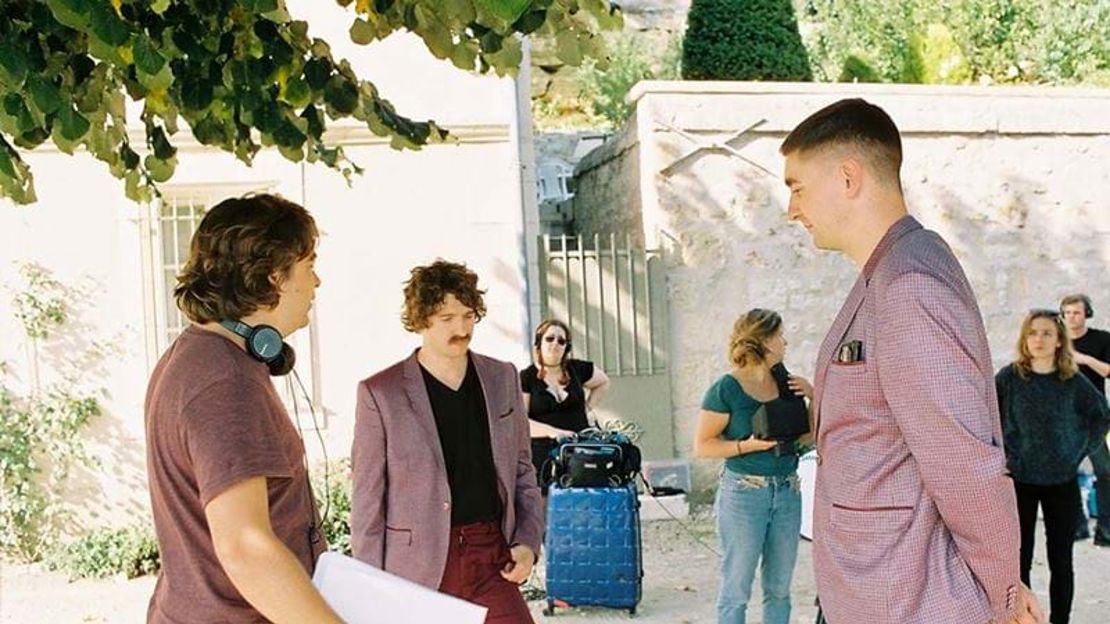Daniella Smith is very clear about the impact of a ScreenSkills bursary on her career. “I couldn't have continued without it,” she says.
Despite studying at the National Film and Television School, single mother Daniella was finding it hard to carry on her career as she was spending most of the money she was earning on hiring kit.
That, along with the cost of travelling to locations, made her contemplate giving up on her dream to work in sound.
“Sound can be an extremely expensive job; most jobs in the world you don't need to invest in thousands of pounds of equipment before you can actually do the job,” she says.
“You need the job to earn the money to buy the kit, so it can mean it's impossible to start…you may have to take side jobs to earn money, but never quite earn enough and end up staying in that side job full time; because at least it's a steady flow of income and not so unpredictable.”
It was whilst she was looking at a training scheme on the ScreenSkills website that she read about the bursaries
Her experience until then included a low budget TV series called Whatever After, work for some homeless charities, a pantomime promo with Brendan Cole, a short comedy directed by musician Nat Jenkins, featuring one of the band members of The Kooks, and a drama on Acorn TV.
Daniella, who is based in Cambridgeshire, decided that to make a real change in her situation, she needed to buy her own mixer.
“Up until this point I had been doing small sound recordist jobs, without having my own equipment; having to hire it in all money I was earning going to kit hire and absolutely none as income. In fact, I was in deficit and so I was desperate for a way to change my situation.”
At first Daniella was unsure if she would qualify for the bursary. She had already been given a scholarship, from BAFTA, to attend the NFTS to learn sound in the first place. “But I thought, you can only go for it and see what happens”. She added: “I don't actually like asking for help, but I really needed some.”
She filled out a form online and received an email with some questions including one asking about what kit she already owned. She was awarded a bursary of £2,000, paid in two tranches once she had provided proof of purchase. As she was comparatively new to the industry, the funds were awarded on condition she agreed to purchase equipment second-hand.
Within a few weeks she had a second-hand mixer. “I ended up purchasing a second-hand Sound Devices 664 mixer, and now I can take short notice jobs. It makes me look more professional,” she says.
“It was very surreal, it still is, for someone, or some organisation rather, to do something like that, to help someone virtually unconditionally - it's just too nice, I feel like I need to give back in some way, as it's just too generous.
“For people who aren't well off… who don't have much help or support alongside them [or] for people that are struggling but want to change their situation, this is beyond helpful. It's some people's only chance,” she says.
“It can mean the difference between continuing in their career and being forced out due to circumstances. It gives people an equal chance and opens up more opportunities.”
That is why she describes her bursary as “invaluable”. Although the production hiatus because of Covid-19 affected her, like thousands others, her work since has included recording the sound for a short LGBTQ+ film directed by Geoff Breton called 6:23am starring Charlotte Ritchie, from Call the Midwife and Fresh Meat, and Cleaning Up's Jade Anouka. She also landed three other sound recordist jobs in quick succession including a short romantic film with some NFTS alumni.
She says the added benefit of the bursaries scheme was “it creates a more diverse industry…allowing those from a poorer background to break in, as well as single parents, mothers, etc. It gives everyone a chance as opposed to saying, ‘If you can't afford it, tough, do something else.’ It's more like, ‘If you really want this, let us help you.’”
ScreenSkills bursaries are supported by BFI-awarded National Lottery funds, by industry contributions to the Film, High-end TV, Children’s TV and Animation Skills Funds and through money from the Television Skills Fund targeted at improving diversity and inclusivity
